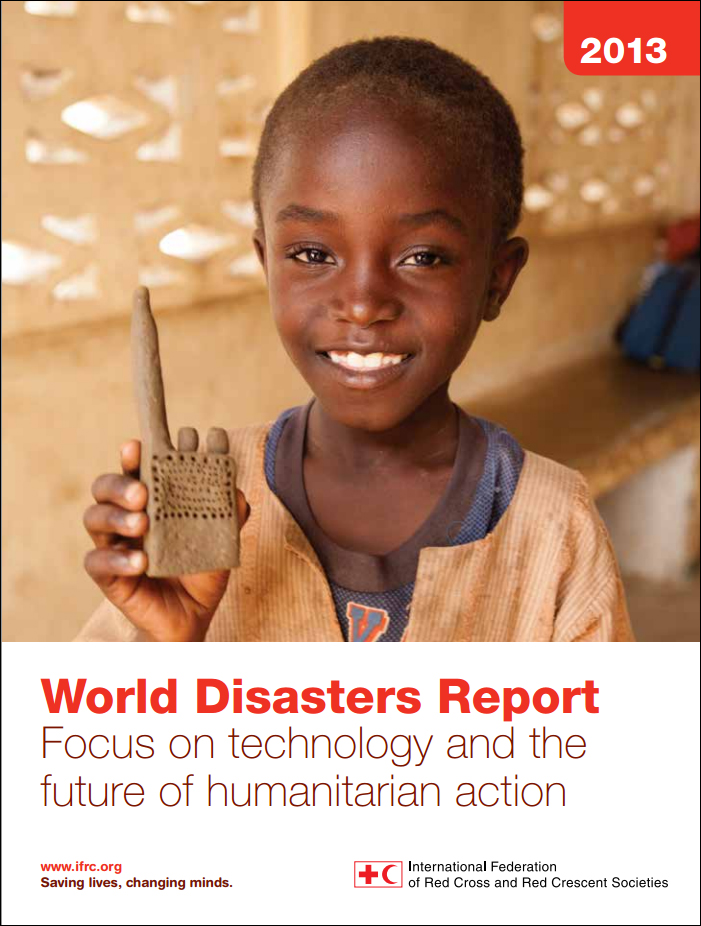
International Federation of Red Cross Red Crescent Societies
The World Disasters Report 2013 examines the profound impact of technological innovations on humanitarian action, how humanitarians employ technology in new and creative ways, and what risks and opportunities may emerge as a result of technological innovations.
The responsible use of technology offers concrete ways to make humanitarian assistance more effective, efficient and accountable and can, in turn, directly reduce vulnerability and strengthen resilience. Finding ways for advances in technology to serve the most vulnerable is a moral imperative; a responsibility, not a choice.
Published annually since 1993, the World Disasters Report brings together the latest trends, facts and analysis of contemporary catastrophes and their effect on vulnerable populations worldwide. Initiated by the International Federation of Red Cross Red Crescent Societies, it convenes eminent researchers, authors and development and humanitarian aid practitioners to highlight contemporary issues on a yearly basis.
(READ COMPLETE ARTICLE)
Recent Comments